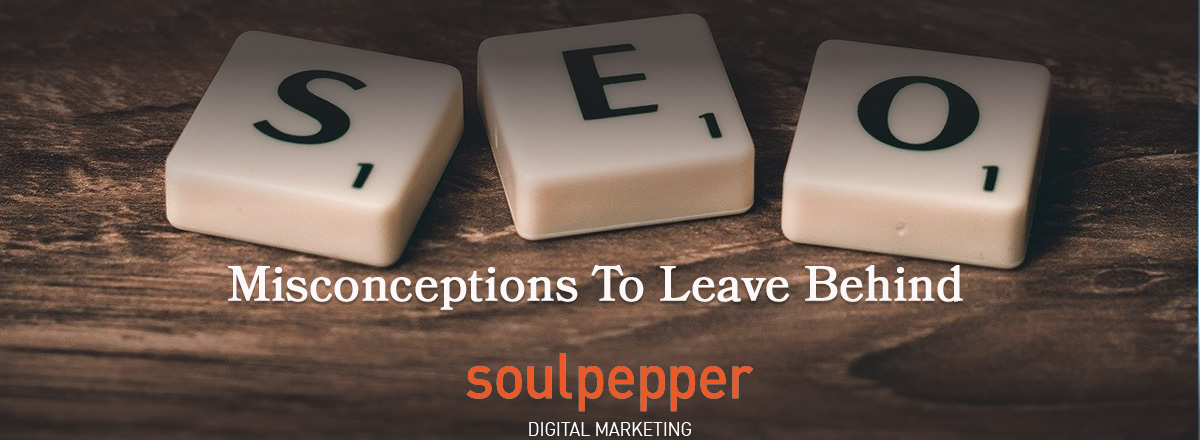Search engine optimization (SEO) is a constantly evolving beast. The intricacies of SEO tend to create many misconceptions and myths that can throw many law firms off the truth. Today’s blog seeks to dispel these myths and get your firm on the right track to improve your online presence and secure more leads.
Myth 1: Focus on content only, not keywords
Creating and curating quality content on your platform is incredibly important for your online presence. That being said, law firms should not ignore the role keywords and their placement plays in improving your search engine rankings. Choosing effective topics for your content will be informed by good keyword research, and the strategic placement of keywords will ensure Google recognizes the relevancy of your content.
Myth 2: Google will penalize you for keyword stuffing
While it’s difficult to prove if Google will unlist your website specifically for intentional stuffing, your firm needs to focus more on optimizing keywords and phrases, rather than filling or unnecessarily repeating words on a webpage. For the best chance of ranking and enhancing readability, keyword optimization is key.
Myth 3: You must submit your site to Google to show up
The notion that you need to submit your website to the search giant in order to rank or appear in search results is simply not true. By leveraging on bots and web crawlers to search for content to index, Google can find your content on its own. This is something to be aware of, especially if you have old content you no longer want Google to crawl and list.
Myth 4: You shouldn’t link out to other websites
The key motivation behind having a website and curating content is to provide value. If that means naturally linking out to another website to provide additional context, by all means, do it.
Myth 5: Meta descriptions have a huge impact on search rankings
Meta descriptions – the short page descriptions that appear under the title in search results – do not serve as an official ranking factor for search engines. However, these descriptions can be helpful for a searcher so may have a bearing on whether users click on your content, thus improving your click-through rates (CTR).
Insider tip: keep descriptions under 160 characters and be sure to include your entire keyword or phrase.
Myth 6: SEO is a function of the IT department
While certain facets of SEO are technical, optimizing your website is a marketing function, not an IT function. Some web developers have a good handle on on-site optimization, but SEO forms just one part of a site build so is often overlooked. From keyword research to content creation and link-building, SEO strategies require a marketing mindset and someone familiar with Google’s ever-changing requirements. Not confident your team has what it takes to boost your rankings? Get in touch with our SEO experts for a complimentary website audit and consultation.
Myth 7: SEO is a one-time thing
SEO is an on-going, long-term practice you must keep up with. To consistently work on ranking, law firm marketers like ourselves regularly review key ranking factors that can get you the results you’re after. We’ve created an SEO checklist for you to follow along and better understand the process. Check it out here.
Myth 8: You can have multiple H1 headings
Headings are an integral part of a website/webpage as they give readers a better understanding of the context of different pages. User experience and information accessibility is the motivation behind one H1 heading per page.
Myth 9: My homepage needs a lot of content
Your website and its homepage are the gateways to your business. This is your first chance to make a really great impression and convince visitors to engage with your content, and in turn, reach out to you for more. If your website has too much copy or barely any content on, what message are you sending out about your organization? Find the right balance between the two and ensure you are in a position to clarify who you are, what you do and how you can solve a user’s problems. Potential leads and clients should leave your homepage satisfied, not overwhelmed, underwhelmed or even worse, confused!
Myth 10: Local SEO doesn’t matter
This myth couldn’t be further from the truth. If you’re a local business, optimizing for local search won’t only help you get found, but it will help you get found by people who are nearby and more likely to buy from you. A recent study found that 46% of all Google searches are for locally sourced information, while another 88% of smartphone internet users either called or visited a store that same day.
To ensure your business is showing up in local searches and is providing useful information, verify that you’ve claimed and updated your Google My Business profile.
In this age of fake news and evolving technology, it is often difficult to decipher what information is fictional or fact-based or simply outdated. Hopefully, this quick article helped dispel some common SEO myths for you. If you need assistance in developing a comprehensive SEO strategy that will improve your search visibility and increase the number of visitors to your firm’s website, give us a buzz. We’d be happy to help.

